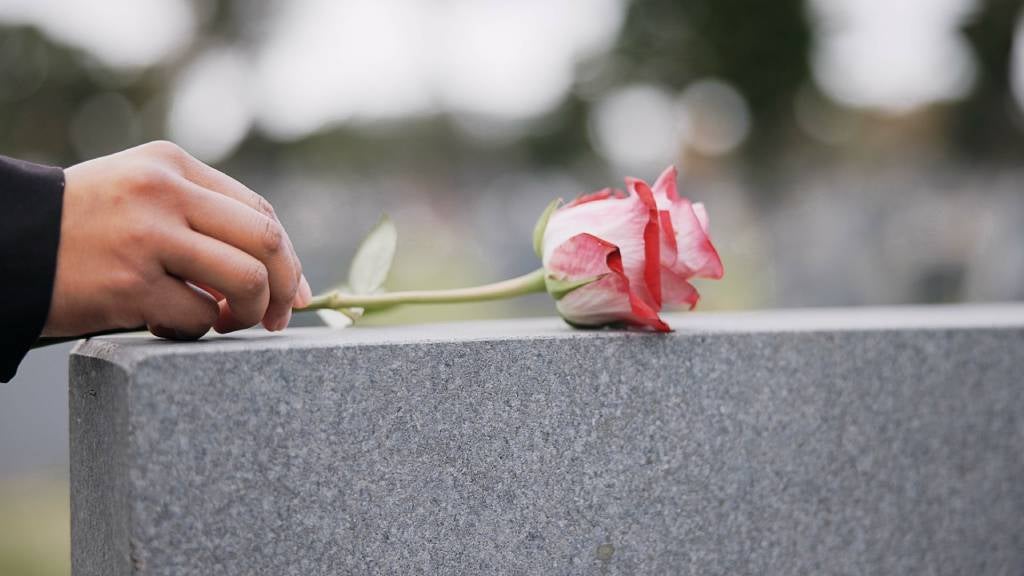A funeral director's tips on what to do after someone dies

When someone you care about passes away, whether it’s sudden or expected due to declining health, it can be emotionally and physically overwhelming, making it difficult to know what to do next.
From the first 24 hours to dealing with paperwork and legal matters, we sat down with Cheryl Forbes, Planner and Celebrant at Picaluna, to discuss what you should consider doing.
What to do in the first 24 hours when someone passes away
There are many different ways to respond when someone dies, and it generally depends on the circumstances surrounding the death. Factors like when and where it happened, how the death occurred and whether it was accidental or expected. All these things will influence how you react and what you can legally do following someone’s passing.
“If the death takes place in a hospital or nursing home, you will be surrounded by professional care, and be well advised,” Cheryl says.
“If it is in a public space, then emergency services will need to be called and will provide the necessary care,” she adds.
In the first 24 hours after someone dies at home, Cheryl shares that “if the death was accidental, emergency services will need to be called and very likely the deceased person will be taken to the coroner to determine cause of death.”
“This can take some time, but after the cause of death is determined they will advise that you can make funeral plans and contact a funeral director, who could make all of the arrangements for you.”
“If the death was expected, you will need to contact a medical professional to issue the medical cause of death certificate or an interim certificate. You can then contact your funeral director to bring the person into their care and begin to make funeral arrangements.”
However, Cheryl says the biggest misconception at this time is that your loved one needs to be taken from the home immediately.
“Depending on the circumstances, it may be possible to hold a vigil at home with your person for up to five days,” she states, “this will require specialist advice, equipment and assistance. Your funeral director or death doula should be able to provide that support.”
Contact close family and friends
Following the death of a loved one, it’s easy to forget even the most obvious things. While you are concerned about what to do in the immediate aftermath, you may not think to contact close family and friends to tell them of the passing.
Whenever you get a moment, make a list of all the important people to contact and then start reaching out to them. It may be easier emotionally to simply write a ‘template’ text message or email for extended family, whereas you may want to call or visit those who were closer to the deceased.
Document information
It may be helpful to document everything that is happening in the wake of your loved one’s passing. Whether that’s writing things down, leaving yourself a voice memo or simply listing some notes in your phone – keeping track of all the events can help you recall important information when needed, for example when the death certificate will be available, funeral arrangement quotes, or steps to finalising your loved one’s estate.
Reach out for additional support
In all of this you may forget to take care of yourself. Forgetting to eat is common, as is losing track of time and forgetting to go to sleep at a reasonable hour. Don’t be too hard on yourself, and make sure you are getting the support you need to cope.
Reaching out for extra support comes in many ways. Maybe you would like to have family or a friend with you as you tackle some of the tougher tasks of dealing with a loved one’s death. Or maybe you just need someone on the other end of the phone to listen as you talk through your emotions and what’s happened that day. Whatever you need, seek it out and surround yourself with people who care.
Contact a funeral director
Cheryl says that many Australians are letting go of the notion of booking a church or non-denominational chapel at a funeral home or crematorium. Instead, they are embracing the concept of honouring their loved ones on familiar turf, including – but not limited to – the family home, a local sporting club such as a surf or golf club, a local park, winery, or public halls and venues.
While you can choose to make all the arrangements yourself, hiring a funeral director may lessen the burden at an already difficult time.
Make practical arrangements for the funeral
Now that all the important tasks have been handled following your loved one’s death, it’s time to start thinking about how to arrange a funeral.
Cheryl says that there are so many ways you can honour a person in your life who has died. She adds that this stage will require you – and family and close friends – to decide on a number of things, including:
- Cremation vs burial
- Venue
- Day and time
- Transport for your person to the funeral
- Style of coffin
- What to dress the person in
- Flowers
- Orders of service
- Whom to invite
- How to communicate arrangements (e.g. newspaper or social media)
- Style of ceremony (e.g. clergy or celebrant)
- Music and photo tributes
- How you memorialise them (e.g. headstone, memorial park, scattering or urn)
For many of these things, the deceased’s wishes may already be stated in their will. If not, it will be up to the family or those closest to them to decide all the specifics of the funeral. Although we recommend looking at the rules in your state or territory, as they can differ.
Take care of legal matters
After the funeral, you will need the official death certificate – issued by the Births, Deaths and Marriages (BDM) department in your state or territory – so that you can advise all the relevant institutions of the death. These include places like banks, workplaces, clubs, the ATO, Medicare, superannuation providers, and insurance providers.
“You will then need to contact their solicitor to begin the process of probate,” Cheryl says, “probate in Australia is a legal process where the Supreme Court certifies that a person has passed away. Once that is certified, executors can begin the process of distributing a person’s assets to their beneficiaries, providing they have a will. If there is no will, intestacy laws determine who receives the assets.”
Consider your end of life wishes
Experiencing the death of a loved one can be a stark reminder of our own mortality and make us question how we can ease the burden while also ensuring that our wishes are honoured at the end of our life.
Funeral insurance can help you give your friends and family one less thing to worry about during their time of grief. Request a quote online or speak to Guardian Insurance on 1300 709 560 to find out more.
11 Mar 2024
